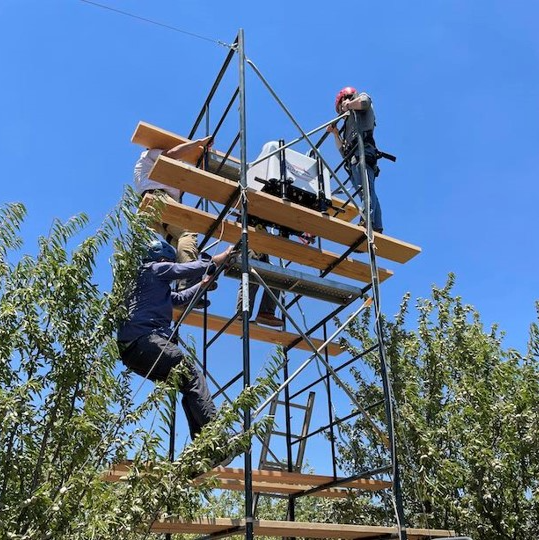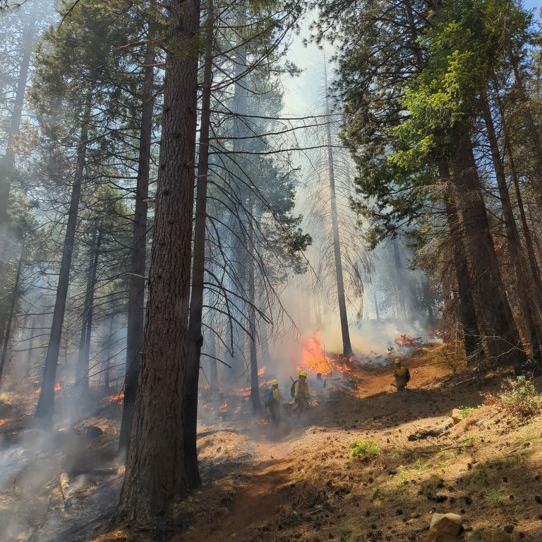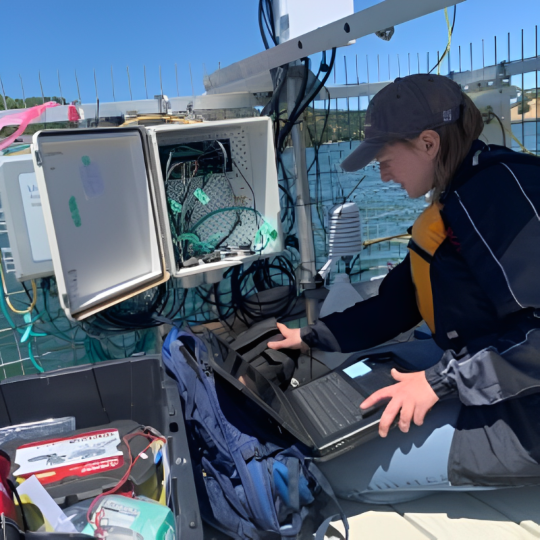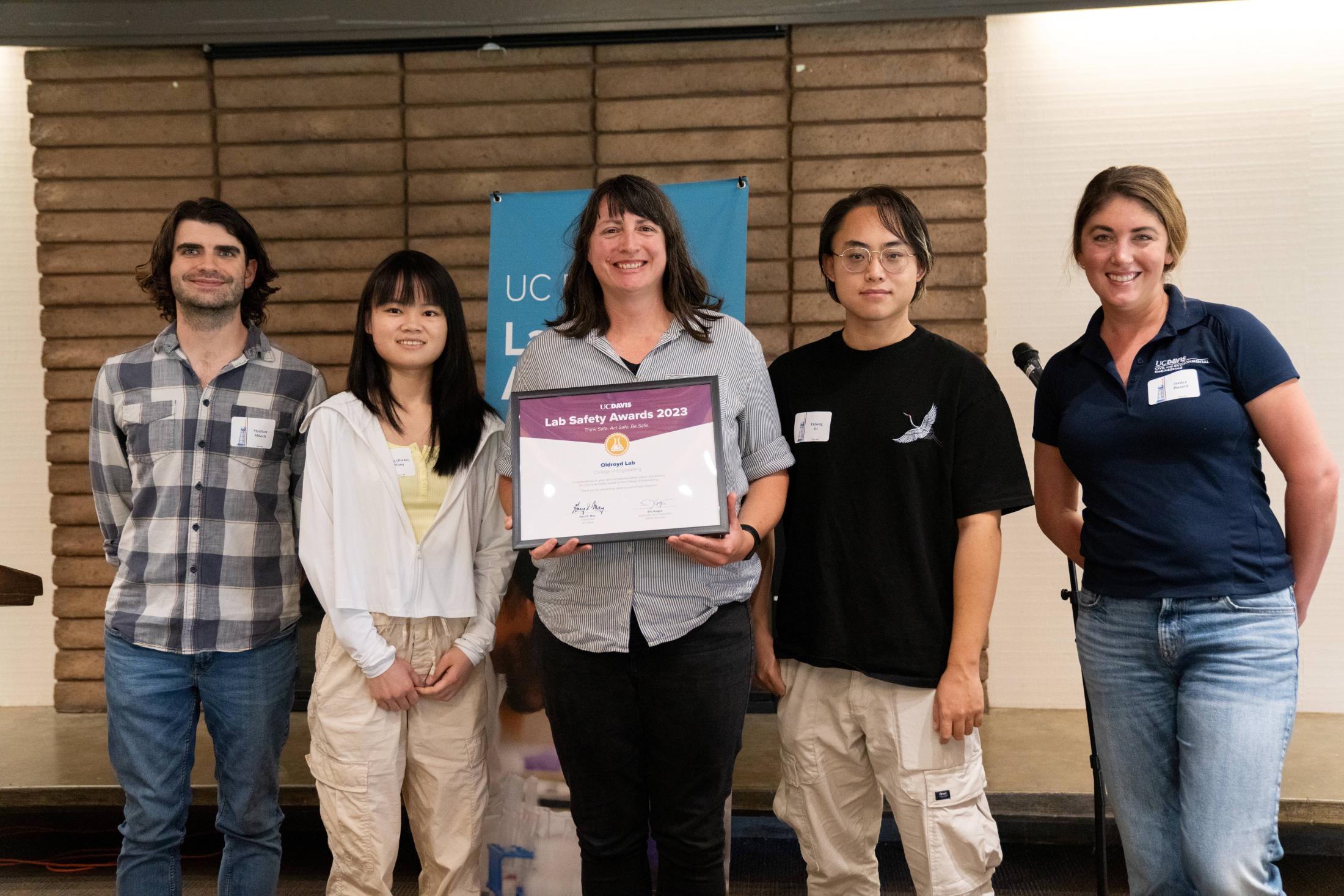The Oldroyd Lab is this year's winner in the College of Engineering.
Dr. Holly Oldroyd’s Lab is always busy with ongoing and new projects, including research among the Redwood trees in Jackson State Forest, working with Mechanical and Aerospace Engineers for aircraft design, and observing smoke transport during prescribed burns—just to name a few.
The Oldroyd Lab studies land-water-atmosphere interactions using field operations. This includes the study of evaporation, heat exchanges, and greenhouse gas fluxes. These observations are used to develop new models that can be used in a number of applications, including hydrological models, numerical weather predictions, satellite remote sensing products, pollutant/smoke transport and wind energy.
Since the Oldroyd Lab studies at several different field sites, their safety plans, training, and standard operating procedures must be developed for each specific site.



The lab first identifies as many safety concerns as they can and how to operate as safely as possible in each environment and for each task.
For some field projects, our biggest safety concern is weather—heat illness or storms,” said Dr. Oldroyd, “yet for other projects, fall protection for climbing 100 feet to install instrumentation is our main concern to address.”
After identifying specific safety concerns, the Oldroyd Lab then develops a field safety plan to avoid risks and ensure that everyone has necessary training. This may include specialized training like fall protection, boating training, or training for operating heavy machinery. They may also need to consider how to identify other environmental dangers such as poison oak, or how to deal with animal encounters. Continual communication is of utmost importance when in the field because changes in terrain and weather conditions may occur unexpectedly.

Dr. Oldroyd’s dedication to safety in the field is evident in the LSP’s review of her laboratory, “Dr. Oldroyd takes a proactive approach to ensure the well-being of both her students and fellow lab users in the Civil and Environmental Engineering department. Holly meticulously plans and prepares for fieldwork, emphasizing the importance of proper safety gear and procedures to her students. Her proactive stance towards lab and field safety, coupled with her willingness to go the extra mile in sharing opportunities, establishes Holly as a role model in promoting a culture of safety, responsibility, and collaboration within the UC Davis community.”
Dr. Oldroyd is also committed to advocating for more effective and efficient ways of keeping safety and laboratory training up to date and accessible, for both her lab and others needing similar resources.